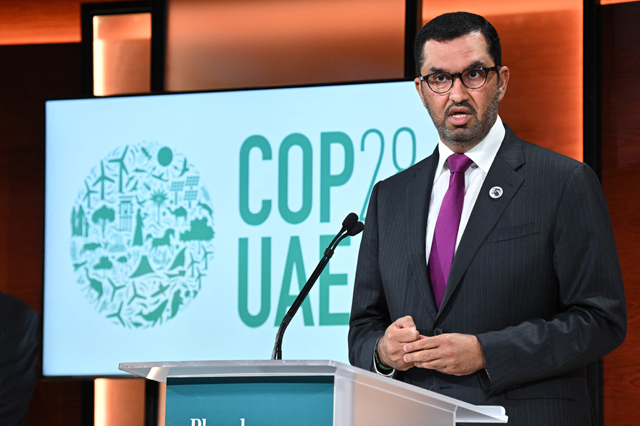You are here
Experts urge extended review period for climate change draft regulation
By Hana Namrouqa - Jul 15,2018 - Last updated at Jul 15,2018
AMMAN — As the Environment Ministry published the climate change draft regulation on its website seeking public feedback, environment experts called for extending the review period, stating that they still have several suggestions and reservations on the final draft regulation.
The allotted period for studying and providing feedback on the draft regulation on climate change is insufficient, the experts said during a workshop organised by the Dibbeen Association for Environmental Development to study the draft regulation.
“We are happy that the government finally issued a draft regulation on climate change, but we have our reservations which we urge the government to take into consideration,” said Dibeen Association for Environmental Development Director Hala Murad, adding “a substantial community of environment experts is studying the regulation now and it calls on the ministry to extend the period of feedback.”
She noted that the feedback period on the draft regulation expires on Thursday.
During the workshop, which was organised on Thursday and whose initial recommendations were issued on Sunday, the experts criticised the government’s alienation of the civic society in drafting and formulating the climate change draft regulation, indicating that involving all stakeholders results in creating a stronger regulation.
The experts, who include environment lawyers, said that the draft regulation should refer to the Paris Agreement and not just the United Nations Framework Convention on Climate Change (UNFCCC).
Adopted in 2015, the Paris agreement stipulates that there must be a balance between emissions from human activity and the amount that can be captured by carbon-absorbing “sinks” by the second-half of this century. It also stipulates that developed nations “should provide” funding to help developing countries implement the costly shift to green energy and shore up their defences against climate change impacts like drought and storms, while rich countries are required to pledge $100 billion a year.
Meanwhile, the UNFCCC, adopted in 1992 and entered into force in 1994, seeks to “stabilise greenhouse gas concentrations in the atmosphere at a level that would prevent dangerous anthropogenic interference with the climate system”.
The framework sets non-binding limits on greenhouse gas emissions for individual countries and contains no enforcement mechanisms. Instead, the framework outlines how specific international treaties, called “protocols” or “agreements”, may be negotiated to specify further action towards the objective of the UNFCCC, according to web sources.
The draft regulations should also outline the nature of legislative measures that can be adopted at a national level to reduce greenhouse gas emissions as well as adaptation and mitigation measures, according to the experts, who also stressed the importance of identifying plans to phase out greenhouse gases.
The experts further criticised the recurrence of the phrase “concerned authorities”, indicating that it fails to define responsible agencies.
“On the climate change national committee, the draft regulation mentions vice president of the committee but fails to identify his/her selection criteria and mechanism,” Murad said.
She underlined that the recommendations will be referred to the Ministry of Environment, urging the later to slow down before issuing an important legislation as such.
Related Articles
AMMAN — The 2023 United Nations Climate Change Conference, more commonly referred to as COP28, is set to commence this Thursday in Dubai, wi
AMMAN — Climate change and land degradation are some of many environmental challenges chipping away at the earnings of Jordan’s sustainable
BONN — Environment campaigners at the ongoing 23rd session of the Conference of the Parties (COP23) in Bonn warned developed countries again


















